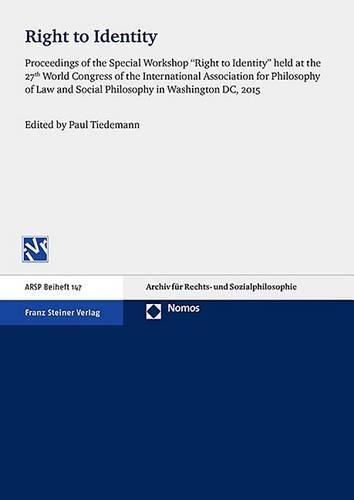Readings Newsletter
Become a Readings Member to make your shopping experience even easier.
Sign in or sign up for free!
You’re not far away from qualifying for FREE standard shipping within Australia
You’ve qualified for FREE standard shipping within Australia
The cart is loading…






According to the case law of the Inter-American Court of Human Rights, the catalogue of human rights as it is expressed in the American Convention of Human Rights, as well as in all the other international codifications of human rights, contains a serious gap. It does not provide a particular right for the protection of identity. Therefore, the Court demands the creation of an unwritten human right to identity by case law in addition to the written codices of human rights in international law. The philosophers, lawyers and political scientists joined in this book discuss this assumption under different aspects and from different cultural and legal backgrounds (Brazil, China, Germany, Japan, and Turkey). The book contains contributions that analyze the meaning(s) of the concept identity based on an individual approach as well as on the basis of a collective approach. It deals with certain aspects of identity in the context of certain fields of positive law, including criminal law and family law, and it questions the real need for a new right to identity.
$9.00 standard shipping within Australia
FREE standard shipping within Australia for orders over $100.00
Express & International shipping calculated at checkout
According to the case law of the Inter-American Court of Human Rights, the catalogue of human rights as it is expressed in the American Convention of Human Rights, as well as in all the other international codifications of human rights, contains a serious gap. It does not provide a particular right for the protection of identity. Therefore, the Court demands the creation of an unwritten human right to identity by case law in addition to the written codices of human rights in international law. The philosophers, lawyers and political scientists joined in this book discuss this assumption under different aspects and from different cultural and legal backgrounds (Brazil, China, Germany, Japan, and Turkey). The book contains contributions that analyze the meaning(s) of the concept identity based on an individual approach as well as on the basis of a collective approach. It deals with certain aspects of identity in the context of certain fields of positive law, including criminal law and family law, and it questions the real need for a new right to identity.